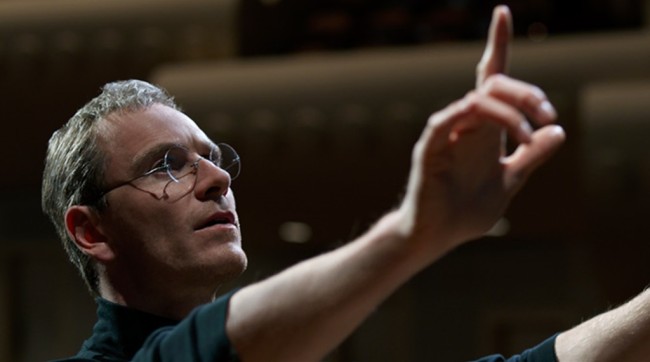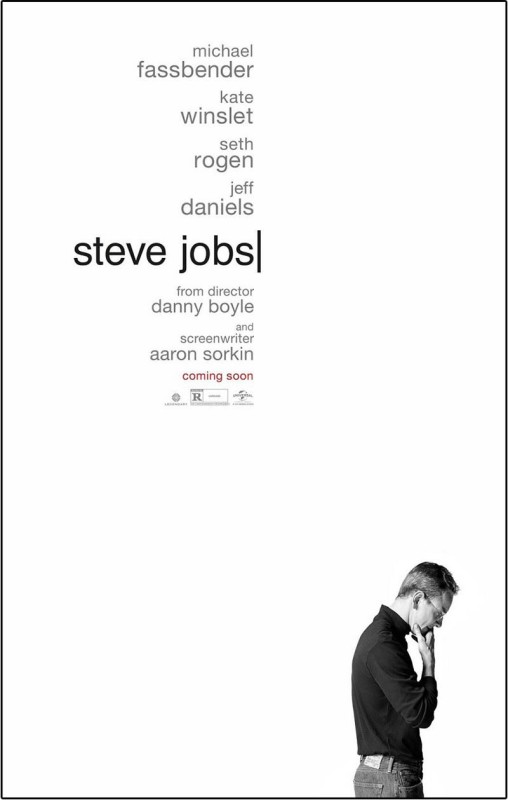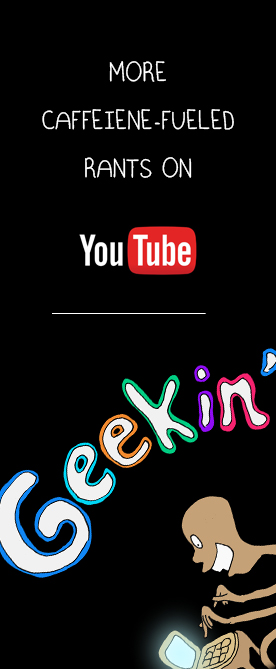By James Hancock October 8th, 2015
Any filmmaker thinking about making a biopic from this point forward is going to have to reckon with Steve Jobs. Director Danny Boyle and screenwriter Aaron Sorkin have effectively torpedoed the entire template for filming biographies of historic figures and good riddance is all I have to say about the old way of doing things. Of all the generic, cookie cutter approaches to making movies, the biopic has to be the most stunted in its artistic evolution. But Steve Jobs is something quite different. Like one of Steve Jobs’s classic disruptive innovations, this movie’s approach to storytelling makes so many other biopics feel obsolete. While the film is broken up into a classic 3-Act structure, namely the launch of the Macintosh in 1984, the introduction of the NeXT in 1988, and the triumphant return of Steve Jobs to Apple with the iMac in 1998, nothing about the emotional turmoil at the center of this film feels anything like any biopic you’ve ever seen. It is through Steve’s adversarial interactions with his family and co-workers during these pivotal moments in his career that we learn all the information we need to know about what made this incredibly enigmatic, visionary, and sometimes hateful man tick. Aaron Sorkin has written a screenplay that is a thing of beauty to see performed. He’s one of the only screenwriters today who deserves to have his name above the title of a movie. As far as director Danny Boyle is concerned, he’s taken his foot off the gas pedal from his usual exhibitionist style of filmmaking. In the best sense of the word, Danny Boyle’s direction is nearly invisible as he takes a step back and allows Michael Fassbender to dominate center stage turning in arguably his most arresting performance to date. In the days to come, cynics will find plenty of small details about the movie to nitpick and I could do the same but I have no interest in doing so. Steve Jobs is one of those rare movies where I stopped objectively scrutinizing the movie while watching it and instead completely surrendered to an immersive moviegoing experience that made me feel like I had an electric charge running through my brain from start to finish.
One would not have to work very hard to make a compelling case for Steve Jobs as the most influential human being of the last half century. When I walked into the theater tonight, nearly every member of the packed auditorium was busy on a device that Apple either invented or inspired their competitors to create. That is a sea change in human behavior over an incredibly short period of time, the type of change whose consequences, both good and bad, we have not even begun to process properly. A figure of this magnitude who was famously surrounded by a reality distortion bubble, a man who was the first to envision computers as a work of art could very easily influence lesser filmmakers from beyond the grave to produce merely a glowing tribute to the man as opposed to creating a living, breathing, combative film. But as we saw with Aaron Sorkin’s screenplay about Mark Zuckerberg for David Fincher’s The Social Network (2010), Steve Jobs is relentless in forcing the tech giant to confront every individual he ever wronged or abused in his ascent to technological omnipotence. But no matter what conclusions we may come to about how Jobs treated his ex-wife and daughter or how he patronized Apple co-founder Steve Wozniak or how he threatened his employees with humiliation if they failed to move mountains for him, in the end this film is a portrait of a great, at times tormented, artist. Like the musicians he was inspired by from John Lennon to Bob Dylan, Steve Jobs changed the world. There’s a brilliant scene toward the end of the film where he describes how with a bicycle a human being transforms from an inefficient organism to the most efficient in the world. He made it his mission in life to build a bicycle for the human mind and not just for the engineers and the visionaries but for every human being on the planet. Like his classic grammatically incorrect ads for the iMac, he wanted us all to learn to ‘Think Different’. For all of his personal flaws, we owe him an enormous debt that we can never repay. But having just been enthralled by Danny Boyle’s stirring and innovative new film Steve Jobs, I like to believe that on some level that this movie (I can’t use the word biopic) is a great first step in settling that debt.
I am one of the Co-Hosts of Wrong Reel and you can find more of our content here:








